Micronesian canoe has maiden voyage on the Foyle
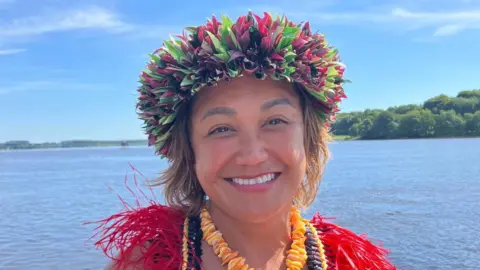 BBC
BBCA canoe built using traditional Micronesian techniques has made its maiden voyage up the River Foyle.
The 8ft (2.34m) canoe was made from a tree felled at the Brook Hall Estate in Londonderry during a winter storm.
It was carved in just nine days by a team from the University of Guam Island Wisdom Micronesian Seafaring Programme.
"I have had the pleasure of watching these master carvers turn what was a log into a canoe," David Gilliland from Brook Hall Estate told BBC News NI.
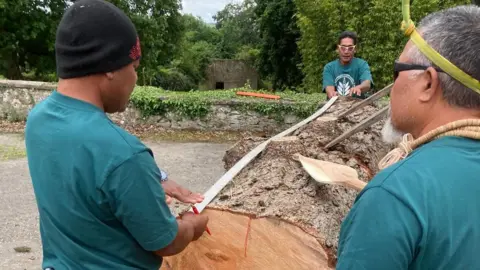
Master navigator, Dr Melissa Taitano, one of the team of boat builders, said the Brook Hall Canoe Building and Research Project had taken shape over more than two decades.
Twenty-two years ago and then a student, she said she "had an amazing and inspirational teacher, Prof Anne Gilliland, who is an OG Derry girl".
Raised at Brook Hall, Prof Gilliland now teaches at UCLA (University of California, Los Angeles), specialising in the displacement of cultures.
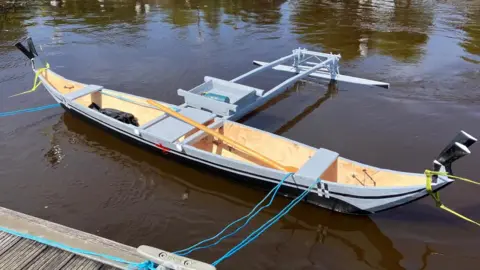
Two years ago, her son Tanner, a sculptor and woodworker, formed a friendship with a Micronesian boat builder while on a visit to Hawaii.
They pledged to some day bring Micronesia's canoe building traditions to Northern Ireland's north west.
When the tree came down at the Derry estate last winter, Prof Gilliland's nephew David gifted it to the group of traditional Micronesian boatbuilders.
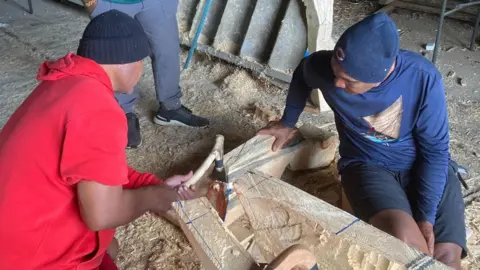
"We started the planning process, things came together, we were able to gain the funding for it… and so here we are," Dr Taitano said.
Arriving on 24 June, the team – Dr Taitano, Larry Raigetal, James Beiuweilish and Willison Yarofaitir – set to work.
Finishing in nine days, Dr Taitano said, may be a record.
"At home it takes us two months," she said, adding that culturally the building of a canoe holds a deep significance.
"We believe the trees and all of nature carry spirit, and they are the spirit of our ancestors. We take the life of a tree but give it new life by transforming it into a canoe that helps to sustain the community.
"Canoe culture is sustainable culture," she said.
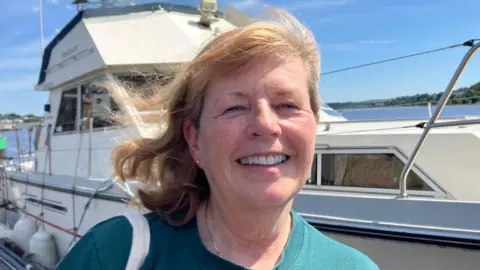
Micronesia consists of some 600 islands in the Western Pacific.
Prof Anne Gilliland said those islands are among the most at risk anywhere in the world because of climate change.
For the Micronesian people, she added, that poses "an existential risk".
"As navigators they are aware of the tides, the winds, the movements of the fish and the sea creatures - these are all changing," she said.
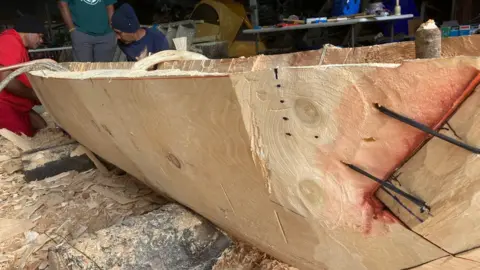
"They have really ancient knowledge that our western scientists don't have and that they can bring to bear on what's happening."
She said the canoe project had shown how people must adapt to changes in the environment.
When the boat builders came to Derry, she said, they had to work with materials they had never used before.
"We had no idea what would happen – that is exactly what we have to take into account as the climate changes," she said.
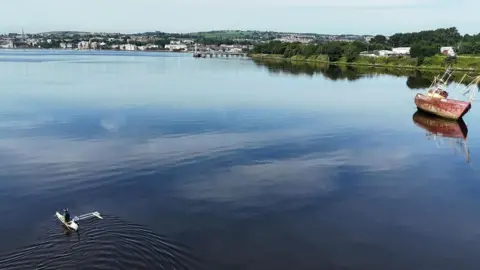
Prof Gilliland added: "How are we going to adapt to a future, without losing our past and identities?
"This is a little capsule that talks about that and the importance of how you build bonds between communities and how they take us into the future."
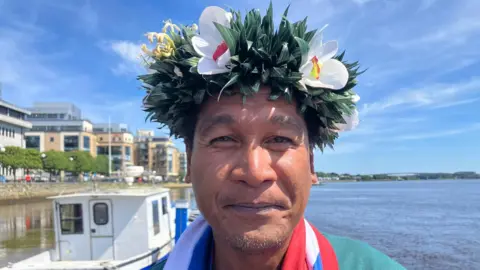
It was Willison Yarofaitir who paddled the canoe from Brook Hall to the Peace Bridge on Friday.
"It was amazing. I am really happy, feeling great for the families that invited us to carve this canoe," he said.
Mayor of Derry and Strabane Ruairí McHugh said the canoe was a "powerful symbol of connection between the ancient city of Derry and the islands of Micronesia."
